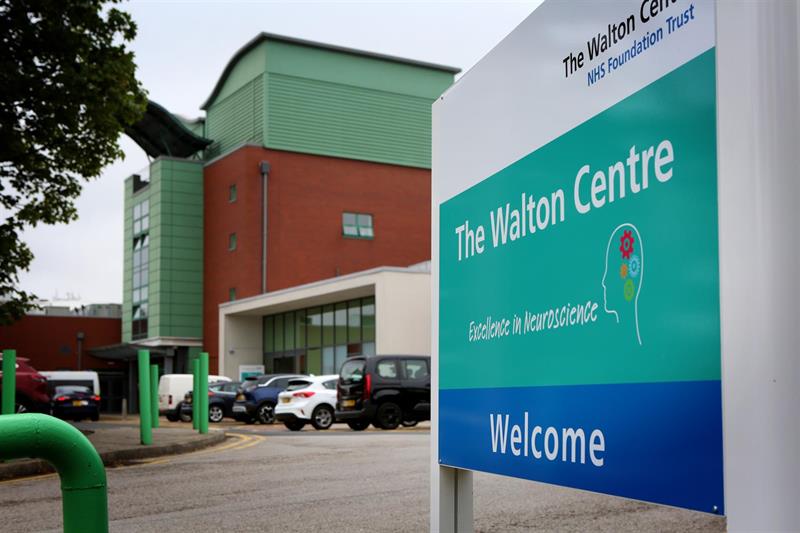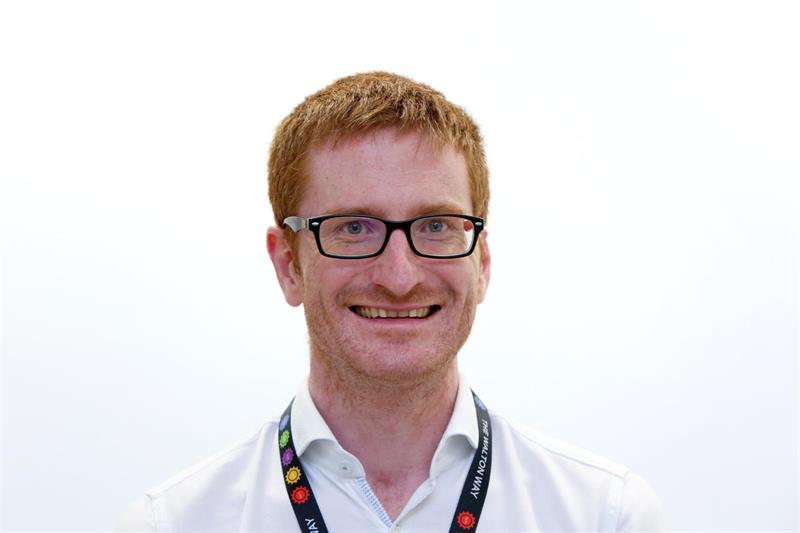Neurophysiology Department
Service contact information
Service detail
The Neurophysiology Department carries out a range of diagnostic tests to record the electrical activity in different areas of the body. The department consists of six clinic rooms and a waiting area. There are five Consultant Neurophysiologists, doctors specialising in Neurophysiology, who work in the team with Clinical Physiologists. Apprentices and trainees may ask to perform, assist with or observe your test; however this is discussed with you prior to your appointment. We also have a department manager, healthcare assistants and several administrative staff who keep the department running smoothly.
Getting here
The Neurophysiology Department can be found in The Walton Centre Main Building, 1st floor (opposite Lipton Ward).
The Walton Centre - Main Hospital Building

This building hosts many of our in-patient services, including wards and theatres, and some outpatients services.
Address
Lower Lane, Liverpool, L9 7LJ
Directions and map
- View The Walton Centre - Main Hospital Building on a map
- Get directions to The Walton Centre - Main Hospital Building
The Walton Centre NHS Foundation Trust is not responsible for third-party sites or content.
Referral information
Neurophysiology is a Consultant referral service only
Patient leaflets

Ambulatory EEG (Electroencephalograph) Monitoring
EEG stands for Electroencephalogram. This is a recording of the electrical activity of the brain.

Brainstem Auditory Evoked Potential
This is a painless test that records the function of a nerve pathway between the ear and the brain.

Electroencephalograph (EEG) - Activation Clinic
EEG stands for Electroencephalogram. This is a well established and painless test which will record the electrical activity of the brain.

Electroencephalograph (EEG) - Routine
EEG stands for Electroencephalogram. This is a well established and painless test which will record the electrical activity of the brain.

Electroencephalograph (EEG) - Sleep Deprived
A sleep deprived EEG is a recording of your brain waves following a period of no sleep and may provide the doctors with additional information.

Invasive Telemetry
You are having this investigation as your consultant requires more information following surface EEG recordings.

Multiple Sleep Latency Test
The test is the standard way to measure your level of daytime sleepiness.

Neurophysiology Department - Brain mapping and monitoring during surgery leaflet
Your surgeon would like you to have neurophysiology spinal cord monitoring during your surgery.

Neurophysiology Department brain mapping and monitoring during an awake craniotomy
Your surgeon would like you to have neurophysiology mapping during your surgery. This includes motor mapping while you are asleep and language mapping when you are woken up in theatre.

Neurophysiology Department spinal cord mapping and monitoring leaflet
Your Surgeon would like you to have Neurophysiology spinal cord mapping and monitoring during your surgery. This involves mapping and monitoring of the motor and sensory parts of your spinal cord that are at risk of injury either directly from surgery or indirectly from blood loss or stroke.

Nocturnal polysomnography (NPSG)
Your doctor would like you to have a nocturnal polysomnography investigation (NPSG).

Sleep Deprived EEG (Electroencephalogram) Patient
EEG stands for Electroencephalogram. This is a recording of the electrical activity of the brain.

Somatosensory evoked potential
Your Consultant would like you to have a somatotosensory evoked potential investigation (SEP).

Video Telemetry
This is a continuous Electroencephalogram (EEG) and video monitoring which records until sufficient information is obtained and can last up to 7 days.

WADA Test
This test helps your doctors to discover which side of your brain controls speech and memory prior to you being considered for epilepsy surgery.
Neurophysiology Department Consultants

Dr Brython Hywel
Dr Hywel does neurology clinics and ward reviews at Ysbyty Gwynedd Hospital and EMG and EEG work at The Walton Centre.
Dr Glenn Holland
Dr Glenn Holland completed his training in clinical neurophysiology at The National Hospital for Neurology and Neurosurgery, Great Ormond Street Hospital and The Royal Free Hospital in London. His junior doctor training and research was completed in the North West of England and he was appointed as a consultant at The Walton Centre in 2020.
Related Services
Nerve conduction studies (NCS) and Electromyography (EMG)
Tests carried out to assess function of the nerves and muscles.
Evoked potentials (EP)
Recording potentials produced by the brain in response to stimuli such as a flashing light, sounds and muscle twitches.
Page last updated: 17 May 2021
64